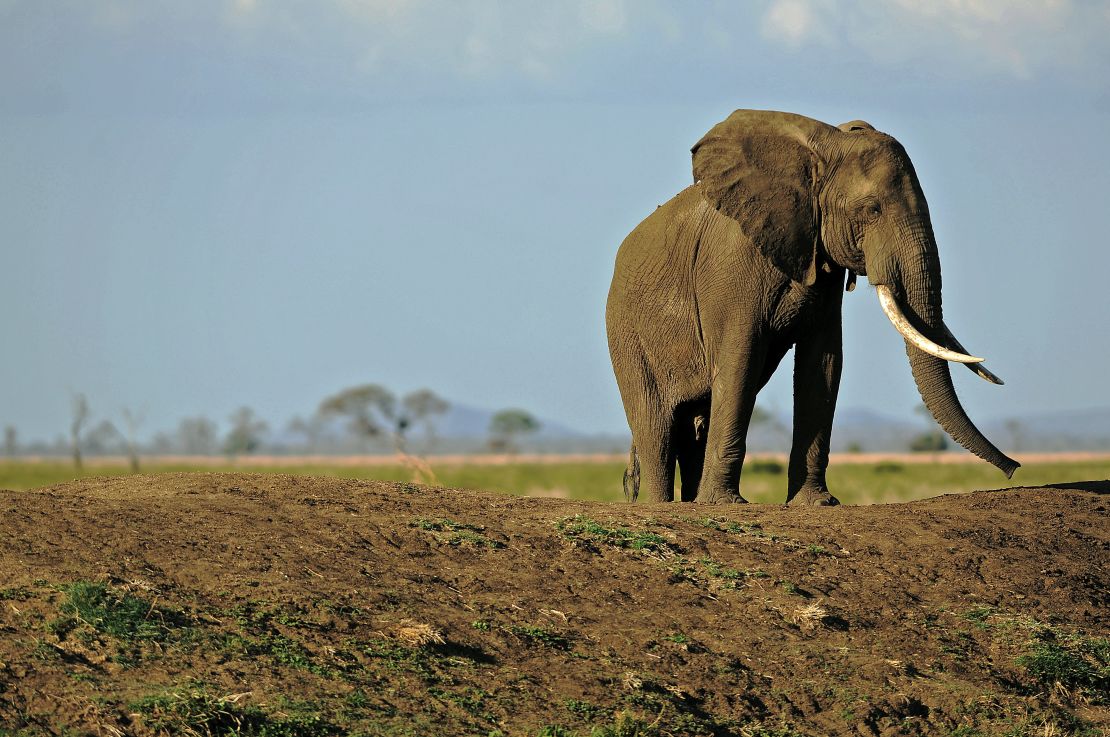Editor’s Note: Kenyan conservationist Paula Kahumbu is the Executive Director of WildlifeDirect and heads the “Hands Off Our Elephants” campaign. The opinions expressed in this commentary are solely hers.
Elephants could be extinct in the wild within a few decades, leading experts warned late last month in Botswana at the Kasane Conference on the Illegal Wildlife Trade, which gathered 150 delegates from countries that are sourcing, transiting and demanding ivory.
The participants signed onto 15 new commitments to stop the slaughter of elephants which have been hailed as significant not only for Africa but globally.
Yet, some conservationists feel unless China – the leading consumer of ivory – commits to ending the ivory trade, elephants will be doomed.
Disgust, shame and horror

I am one of them. I started working on elephant conservation when I was a teenager at the National Museums of Kenya. My job was to measure every piece of ivory in the national stockpile.
After two weeks of handling thousands of blood encrusted tusks, I was persuaded that the time for elephants was up.
I had already seen the photographs of mutilated elephants on the headlines of our local newspapers, but now I had the scientific proof that poachers had been gunning down most adult elephants, and were also taking down baby elephants with tusks no more than six inches long.
I remember the disgust, shame and horror I felt at what was happening to an animal that I had never even seen in the wild.

Progress and regress
My boss, renowned conservationist Richard Leakey, put up a spirited fight and shocked the world by setting the entire Kenyan ivory stockpile alight – the world rallied around Kenya, elephants were listed on Appendix I of the Convention on International Trade in Endangered Species of Wild Fauna and Flora (CITES) and trade in ivory was banned globally.
Within months, legal and illegal ivory markets collapsed and the price of ivory plummeted. At that time Japan was the major consumer and everyone said they could not be moved because the use of ivory was rooted in their culture. They were wrong. The demand for ivory collapsed and poaching of elephants and trafficking of ivory declined sharply and elephant numbers began to recover.
Over the next 25 years, elephant populations seemed safe and conservationists heaved a huge sigh of relief.
But international agencies, including some major conservation NGOs, and the International Union for the Conservation of Nature began to suggest that some elephant populations did not deserve to be on Appendix I – and they even supported renewed sales of ivory.
The first “experimental one-off sale” took place to Japan in 2002. Although the ivory markets in Japan were fairly small, and the controls in that country good, conservationists warned that opening up partial ivory trade was sending the wrong signals, and that it would trigger a demand that could not be contained.
And that is exactly what happened after a second “one-off sale” to China took place in 2008.
Kenya fought valiantly to stop these sales from happening. I headed the Kenyan delegation in 2000 and 2002 and I remember the intense debates at CITES in which the Kenya delegation sought to win global sympathy and support – “with due respect to our sister from Kenya,” the Zimbabwean delegate said, “she is just too emotional.” Their argument was that the southern African countries had valuable ivory stocks, and the sale would not affect the rest of Africa. They promised that the funds would be ploughed back into elephant conservation.
To assuage the fears of Kenya, Mali and many other countries, it was agreed that if the ivory sales caused any spike in poaching, CITES would shut down the markets. It was faulty thinking from the start – you could not shut down a sale after it had happened. Nevertheless, millions of dollars were spent (mostly on western expatriates) to create a monitoring system now called MIKE (the Monitoring of Illegal Killing of Elephants).
Out of control
Now, 12 years after that first one-off sale, which is just one fifth of the lifetime of an elephant, poaching is out of control and elephant populations are plummeting towards extinction.
In response to the escalating poaching, some countries have strengthened their law enforcement through private and public efforts. In Kenya, there is a new punitive law, increased numbers of rangers and suspected ivory kingpins are being arrested. The poaching is down, but we are fully aware that we’re only scratching the surface.
Every African country has its own independent strategy and government responses are slow and clumsy. Yet, poachers and dealers are smart, know the loopholes and the means to corrupt officials.
We know that we cannot save elephants when the demand for ivory continues to rise in Asia. We know that the demand must be extinguished but no one dares to ask for this. It requires the Chinese government to be a friend to Africa and it requires courage.

‘Hands off our elephants’
We do not have time to politely persuade the generations of buyers to give up their addiction for ivory. The only solution is a permanent ban on domestic and international trade in ivory across the world.
My Chinese friends warn me that their government is stubborn, and that China will only follow actions of other countries – two months after the U.S. crushed six tons of ivory, China crushed 6.1 tons of ivory.
It made no difference whatsoever.
I am sick of all the repeated mistakes we keep making with the Chinese in an effort to not offend. The Chinese are waging a war against Africa by decimating our elephant herds. They are using the force of their economy to threaten us. We cannot afford to respond with politeness. We must defend what is ours and express ourselves clearly about elephants now.
We don’t buy panda products, they should get their hands off our elephants.
Read this: Girl, 8, saves wildlife with chocolate
Read this: A superhero who’s not male, white and straight
The opinions expressed in this commentary are solely those of Paula Kahumbu.








